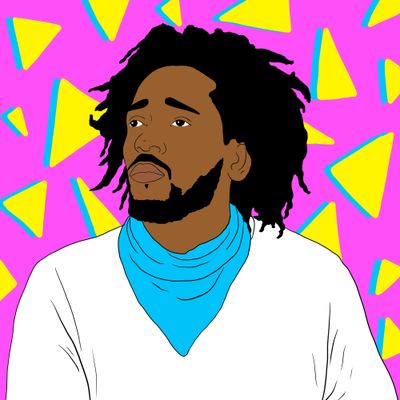
Having established himself as a modern rap virtuoso whose previous album, DAMN., won a Pulitzer, expectations ran high for Kendrick Lamar’s latest release, Mr. Morale & the Big Steppers. So when he dropped his new album, people tuned in: At the equivalent of nearly 300,000 first-week album sales, it is this year’s biggest album drop. Though his songs have become anthems soundtracking social movements, Lamar narrows his commentary to the personal on the double LP — his words arrive seemingly from therapy sessions meditating on family, infidelity, and the healing power of nature.
But nothing on the record is quite straightforward. Lamar doesn’t always say exactly what he means. He shifts voices and puts on different characters. In musical interludes on the record, the sound of tap dancers points to the performative nature of recorded music. Rather than spell it out, Lamar leaves bread crumbs. To unravel his lyrics, it’s necessary to examine the underlying production. The samples on Mr. Morale & the Big Steppers aren’t used just for their sound: In many cases, they unlock a song’s meaning, often speaking to cycles of trauma and violence that Lamar surfaces in his lyrics.
Switched on Pop picked a few of the standout samples for close listening:
“Worldwide Steppers”
The producers: J.LBS, Sounwave, and Tae Beast
The sample: The Funkees’ “Break Through” (1974)
The connection: On “Worldwide Steppers,” Lamar’s raps unfold like a therapy session, processing his children, his relationship to God, his infidelity, and harm to his community. “Break Through,” by the ’60s Nigerian Afro-rock group the Funkees, is a plea to escape from “an invisible prison. How can I be set free?” Lamar sees everyone as killers: “I’m a killer, he’s a killer, she’s a killer” in a Sisyphean loop of pain.
“Father Time”
The producers: Beach Noise, Bekon, DJ Dahi, Duval Timothy, Sounwave, and Victor Ekpo
The sample: Hoskins ’NCrowd’s “You’re Not There” (1960)
The connection: Wrestling with intergenerational, patriarchal trauma, Lamar bemoans, “I come from a generation of home invasions, and I’ve got daddy issues — that’s on me.” The sample of “You’re Not There” is reversed, flipping it to “I’m not there,” pointing to the cycle of trauma.
“Die Hard”
The producers: DJ Dahi, FNZ, Hykeem Carter, J.LBS, and Sounwave
The sample: Kadhja Bonet’s “Remember the Rain” (2015)
The connection: On this down-tempo track, Lamar sings vulnerably about his emotional evasiveness: “Can I open up? Is it safe or not?” He ponders regrets and asks for forgiveness from his family. Bonet sweetly reminisces about a lost childhood love, crooning, “I picked you up when you fell and cut your knee / Told you not to cry and held you close to me.” The skinned knee line evokes the potential for a healing embrace.
“We Cry Together”
The producers: Bekon, J.LBS, and the Alchemist
The sample: Florence + the Machine’s “June” (2018)
The connection: On “We Cry Together,” one of the album’s more heated tracks, two lovers forcefully quarrel with charged language. In “June,” singer Florence Welch erupts in a cry of condolences over the terrorist attack at the Pulse night club. “Hold on to each other” she screams. Boldly, Lamar flips this song about societal violence and shrinks it to the interpersonal, connecting the trauma in our relationships and families to the violence perpetrated against our communities.

